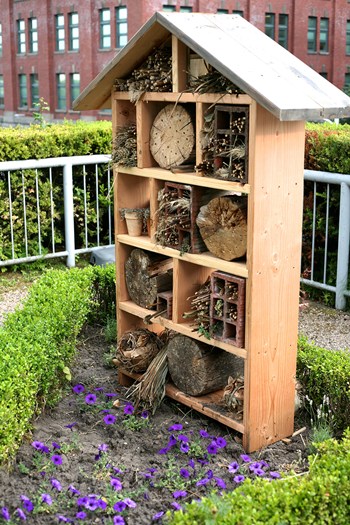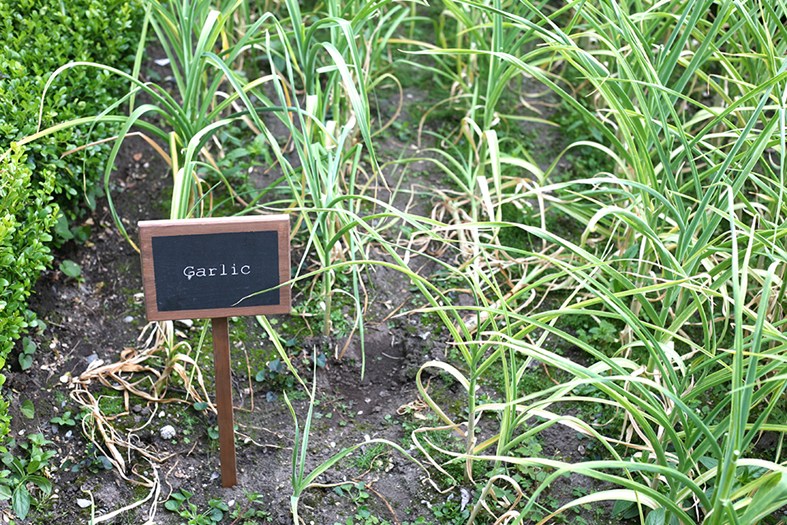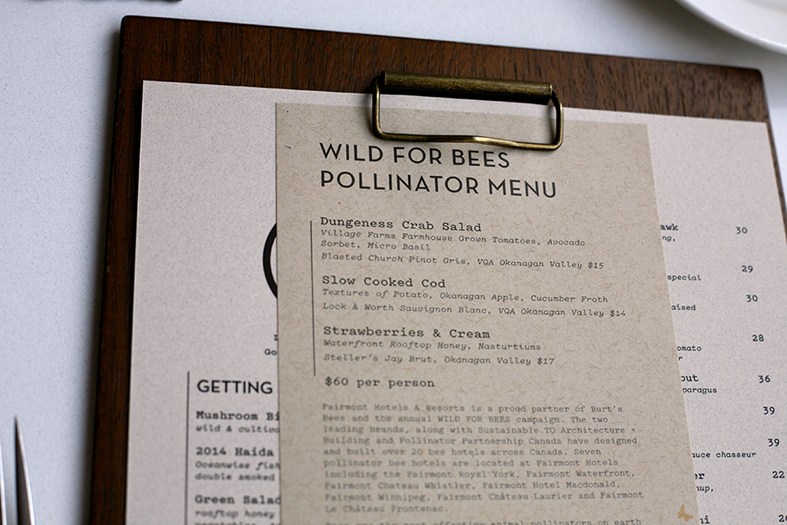VANCOUVER - Bee hotels are all the buzz these days. The newest “Bee&Bee”, as the staff love to call it, can be found on the Vancouver Fairmont Waterfront’s 2,100 square foot herb garden on the third-floor terrace.
Fairmont Hotels are committed to globally improving the overall health and conservation of bee species, and have built over 20 apiaries and eight pollinator bee hotels at properties around the world.
While Vancouver’s Fairmont Waterfront has been hosting bees since 2008, the addition of a structured “bee hotel” is new. Sustainable T.O - a partner in the project - designed the new bee home, while Hives for Humanity lovingly and locally assembled it using wood donated from the Haida Nation in Haida Gwaii, bamboo from Chinatown, twigs and woven balls from Hastings Urban Farm and logs donated from fallen trees and Stanley Park.
The natural materials and small hollow holes provide the bees with a safe space to nest eggs, and are especially important for solitary pollinator bees. Unlike honeybees, solitary bees do not make honey but play a vital role in pollination. Because they live on their own, finding a safe habitat can sometimes be difficult and habitat loss is a real impediment to bees’ ability to pollinate much of the food that we rely on across Canada.
The structure is surrounded by the hotel’s garden, currently in full bloom with flowersand crops that are used in the ARC restaurant downstairs and also aid in pollination.



Left: The Fairmont Waterfront in Vancouver is a real beehive of activity these days thanks to its rooftop bee hotel. Middle: The rooftop garden produces lots of ingredients for the dinner tables at Fairmont Waterfront. Right: This menu really stings guests with its surprising ingredients.
Those who visit participating Fairmont properties across Canada can taste the benefits of the new hives, and support the cause, with crafted pollinator menus and signature drinks. I met up with Kristyna Vogel, a true bee lover expert and who works in public relations at the Fairmont, to share the menu at the ARC to better understand their bee project. Vogel explained to me that most of the food on my plate was made possible thanks to the pollination of solitary bees. While I always knew I could thank bees for honey (which was delicious in our cocktails) I had no idea how important they are to the majority of crops.
An interesting aside is that bees rarely sting! In eight years of having bees at the hotel no one has been stung. Most solitary bees don’t have stingers, and honeybees aren’t interested in stinging you, they’ve got work to do! They’ll likely bump you as a fair warning if you come near their hive, and only sting if you push your luck.
Visitors to Vancouver can learn about our hard working bees by visiting the Fairmont’s bee hotel or by taking the Pollinator Corridor walk through our city’s unique downtown urban gardens, or by interacting with the honeybees at Hastings Urban Farm.
For more on Fairmont's bee sustainable program, go to http://www.fairmont.com/promotions/fairmontbees
About the Author
Gillian was born in raised in Vancouver but has spent the majority of her life living back and forth between Canada and Europe. Her curious nature earned her a degree in Broadcast Journalism at Ryerson University, and brought her to live in Toronto, Paris and Berlin. There has never been a dull day in her career - from from producing documentary series for the Discovery Channel, to working as travel writer, to pursuing her love of food as a private chef and cooking class teacher - this young woman does not believe in limiting your dreams. When she's not busy in her kitchen Gillian can usually be found planning her next adventure!